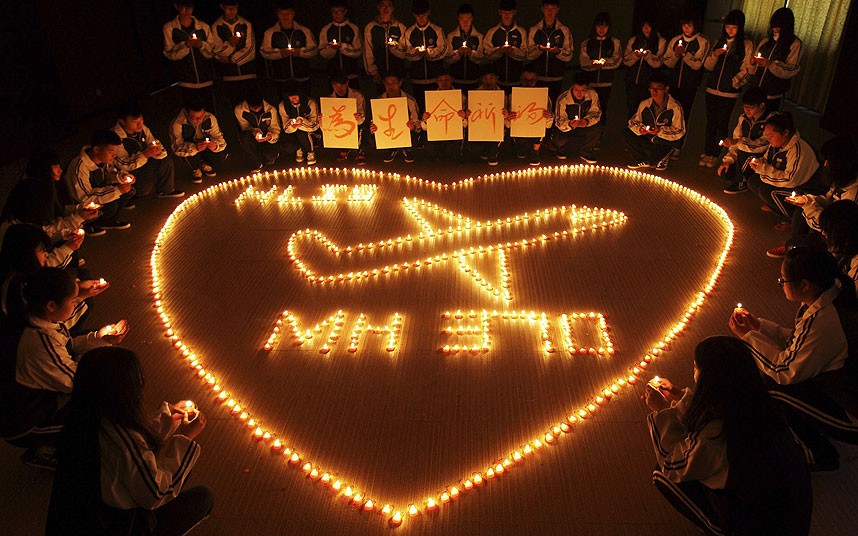How can a plane vanish in a small world? The information vacuum around Malaysia Airlines flight MH370 is as unusual as it is disturbing. In the modern, globalised economy, things normally work well. When they don’t, the causes can usually be identified, and changes often follow to prevent recurrence. So far, MH370 is a distressing exception.
Until a few decades ago, a plane that disappeared from radar would simply be gone. Today, though, it is normally possible to unravel almost all such mysteries. There is much more knowledge than ignorance in technical matters. Aircraft have numerous onboard systems to ensure they are going where they should be and working as they should be. These interact with overlapping communications and tracking arrangements on land and in space. Indeed, so much information is generated in the normal course of flying that, without expert knowledge, the Boeing 777 aircraft could not have come so close to disappearing from electronic sight.
The cloud of information surrounding aircraft is particularly thick, perhaps because the idea of flying seems exceptionally unnatural to many people. However, most parts of the modern economy are remarkably well monitored and measured – and more so all the time. Tastes and practices can be traced with uncanny precision. Cameras track people’s movement, sensors watch machines and buildings, labels track when and where a product was made. When something goes wrong, the precise problem can almost always be identified.
The search for technical expertise does not stop at national borders. True, the MH370 investigation has seen some national frictions. But investigators from many countries are working together and technical skills have been recruited from wherever they are available. In a region of mutually suspicious governments, even the military authorities seem to be cooperating.
The multinational effort is typical of aviation, which is perhaps the most global of all industries. While there are many flag carriers, they all follow the same safety standards and fly aircraft with global production chains. Manufacturers, national regulators and airlines mostly work closely together to minimise the complexities caused by political borders and to ensure they do not become technological hazards. Poor and generally disorganised countries may do less well but, even there, airports are almost always the safest places to be.
Globalisation has not come as far in industries which rely less on the international community, but cross-border standards are increasingly the norm – from cars to pharmaceuticals, from processed food to consumer electronics, from pollution control to machine tools. The reason is simple: producers appreciate the economies of scale and customers gain from best practices and lower costs. National governments sometimes impose local standards, but more often join with each other to create cross-border regulation.
These complex systems are impressive but not flawless. Whether the explanation for MH370 is human, mechanical or both, it is neither the first nor the last catastrophic breakdown. From the Fukushima nuclear accident in Japan to General Motors’ pointless delays in recalling faulty cars, sophisticated and supposedly self-correcting arrangements occasionally go badly wrong.
The reason is simple. Human nature is too variable and human knowledge is too limited to prevent every big sudden failure. The developers of the flight data recorders, the so-called black boxes which have been found on every aircraft since the 1960s, were realists: it is impossible to avoid accidents altogether, so it is best to prepare to learn from them.
The mistakes dominate headlines. That is largely because breakdowns are far rarer than might be expected from a casual observation of people at work. The modern mix of technical knowledge, effective bureaucracies and well-developed codes of practice works remarkably well. Indeed, accidents are so rare that there can be no doubt that the airline industry does much more good than harm, as does power generation, car manufacture and most parts of the modern economy.
The economy often changes in response to tragedy. Crashes, building collapses, environmental disasters, food poisoning and horrible side effects of medication provoke something new. If the plane and its black box are eventually found, MH370 is likely to generate more new equipment, tighter supervision or improved rules.
The time between malfunction and response is often unconscionably long, especially when immediate commercial interests or foolish ideologies argue against action. However, time and again the improvements come. Earlier in the industrial age, governments usually had to push hard. By now, most industrialists are keen to get started, once they admit there is a serious problem.
Of course, the explanation behind MH370’s disappearance could prove to be so strange that countervailing action will not make sense and no lessons can be learned. But history suggests otherwise.
——————————-
Edward Hadas is a Reuters columnist.
Source: bdnews24










